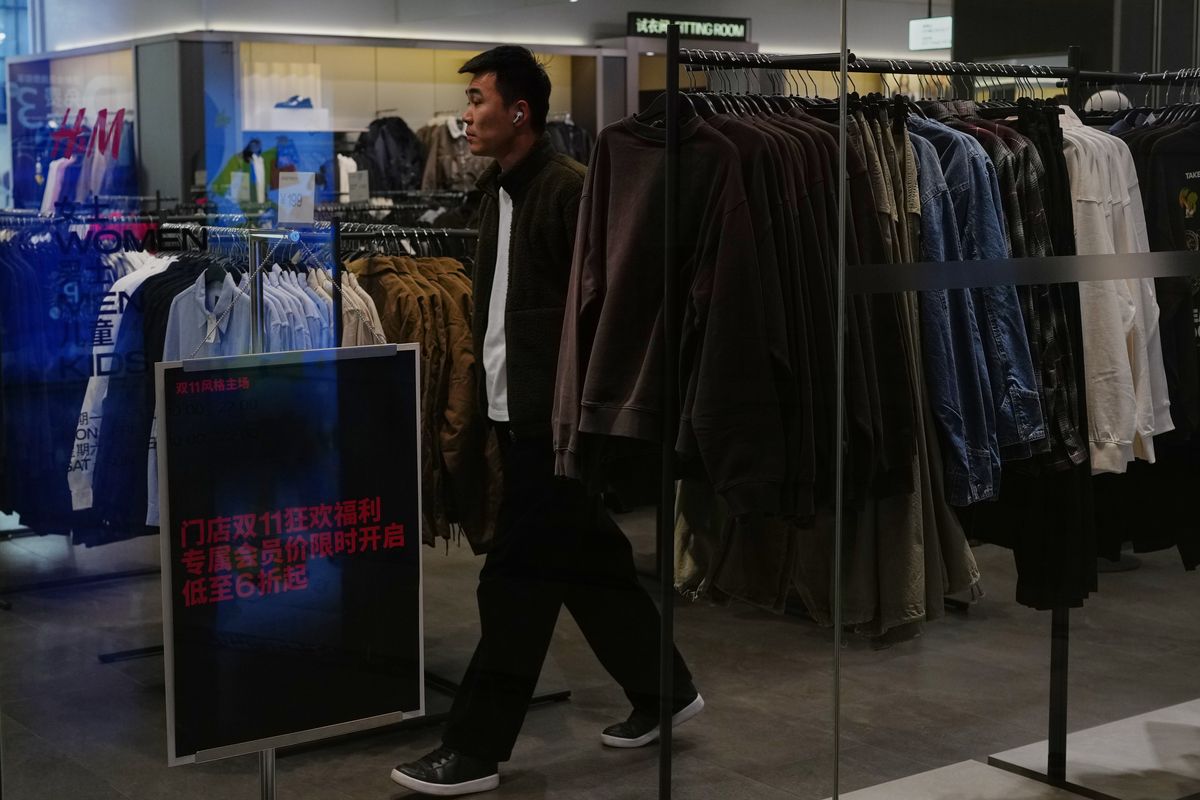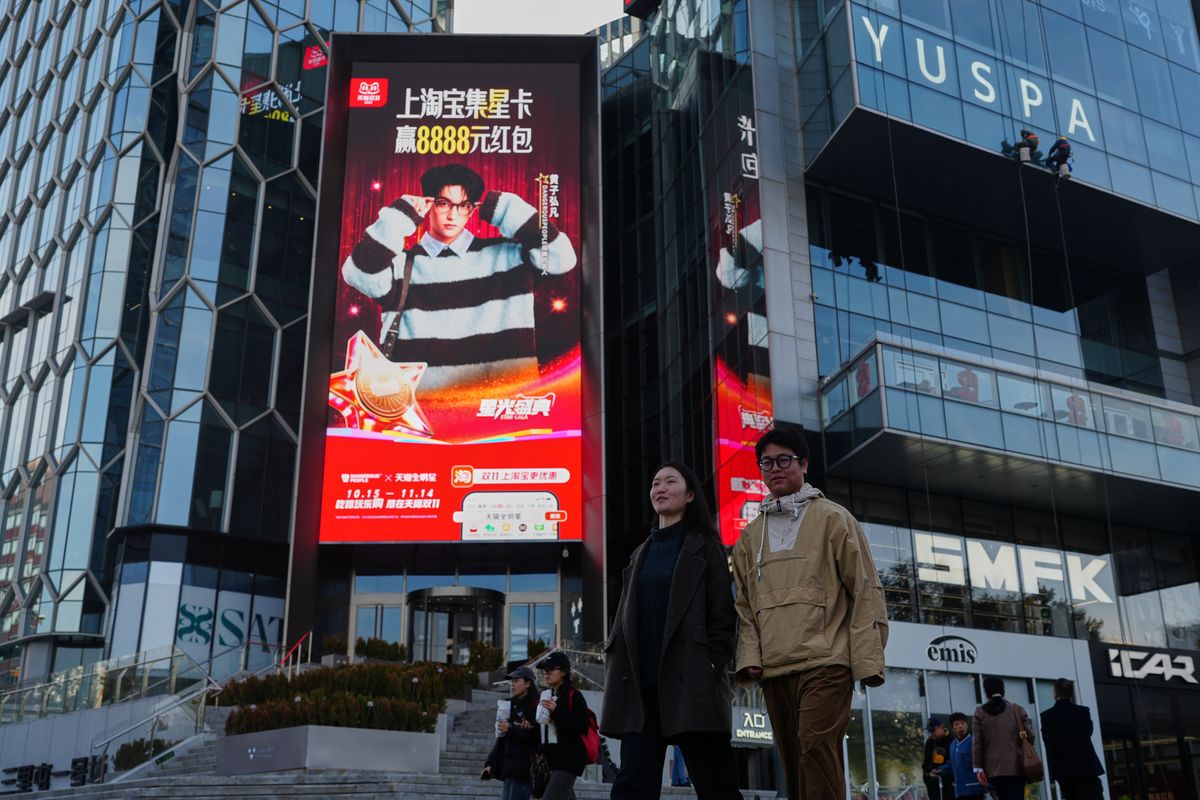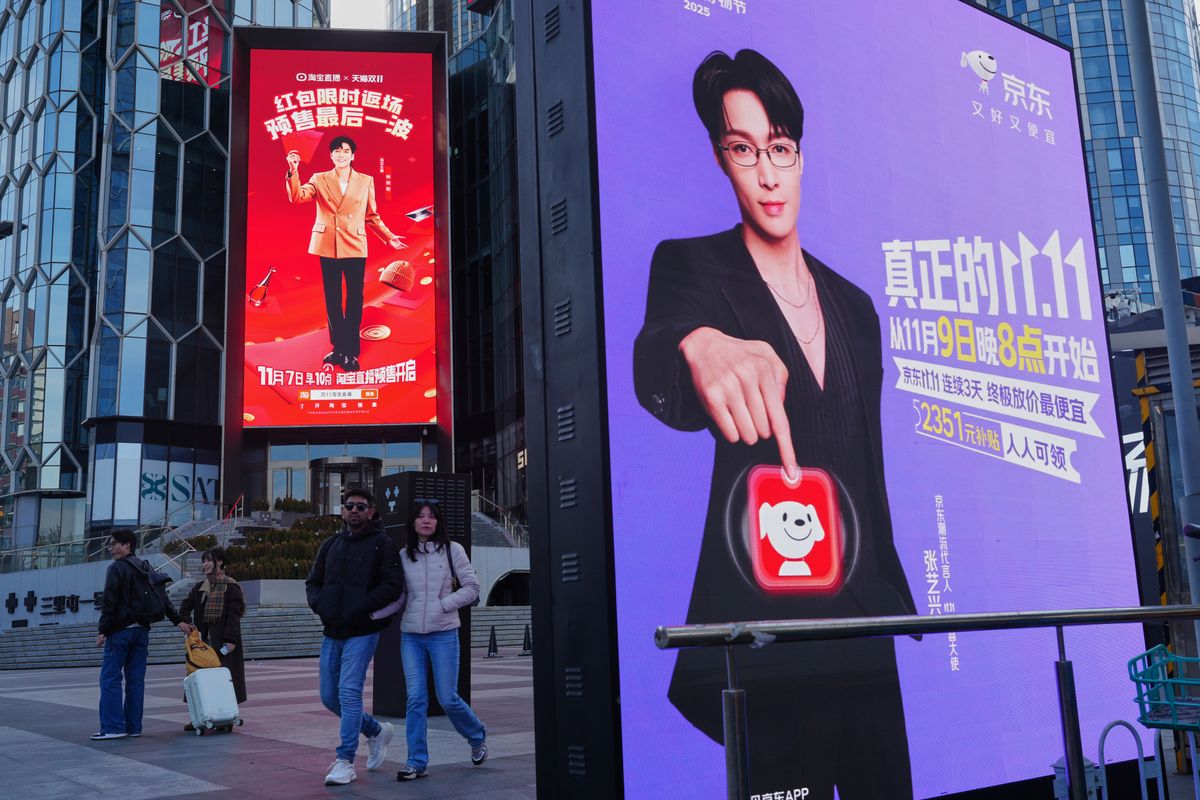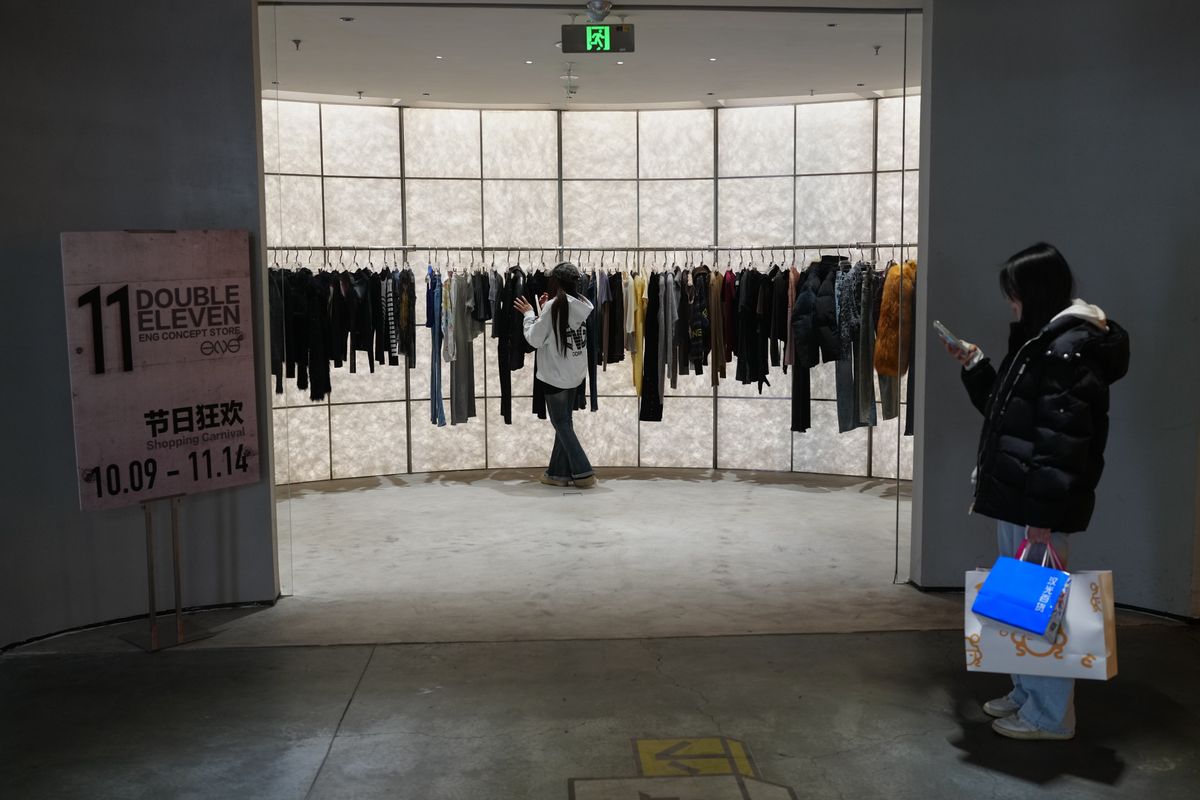HONG KONG (AP) — Alice Zhang, a 29-year-old marketer in the southern Chinese city of Guangzhou, has spent only roughly half what she did last year during the “Singles’ Day” online shopping festival, switching to cheaper choices and giving up on buying new shoes after pay was cut by more than 20%.
That’s typical, analysts say, of the trend for the extended discount campaign that is China’s equivalent to Black Friday sales, initiated by China’s Alibaba in 2009 as a 1-day event on Nov. 11 — Double 11 in Chinese parlance, and considered a symbol of unattached singles.
“I’ve made a conscious effort to cut back,” said Zhang, who spent around 3,000 yuan ($421) this year.
Singles’ Day spending is closely watched by observers and economists as an indicator for the wider economy. This year, the sales period began as early as Oct. 9, several days earlier than in 2024, and will finish this week.
Chinese retail data provider Syntun said that as of Oct. 31, the combined gross value for this year’s Singles’ Day had topped 1 trillion yuan ($140 billion). In 2024, it estimated sales rose about 26% year-on-year to 1.44 trillion yuan.
It remains to be seen if the appetite for spending may finally be recovering after the pandemic and a prolonged downturn in the property market.
Boosting domestic demand such as consumer spending and business investment is a top priority for the ruling Communist Party.
Economists and analysts say spending on big ticket items remains downbeat as value-minded shoppers focus on necessities and more affordable goods.
“Confidence remains quite downbeat among households,” said Lynn Song, chief economist for Greater China at ING Bank.
The early launch for this year’s festival partly reflects the desire of the online retailers that are its main organizers to compensate for weakness in the consumer economy, said Shaun Rein, managing director at China Market Research Group.
“It’s an attempt by (major Chinese e-commerce) players like Alibaba and JD.com to drum up business,” he said. “But it’s not going to be easy.”
“A lot of people have been complaining that the discounts (this year) are not very strong,” said Yaling Jiang, an independent Chinese consumer analyst, adding that she observed a stronger sense of “consumer fatigue.”
Many Chinese consumers are hesitant to spend big.
“Apart from daily necessities, I don’t need to buy any big items,” said Zhang Shijun, a 45-year-old Beijing-based staffer at a vocational training institution. “I (do) still need to buy some clothes for my family, because winter is coming.”
Sonia Song, a freelance media worker who also lives in Guangzhou, is among many who suspect retailers hike their prices to exaggerate the discounts they offer during the Singles’ Day sales.
She puts way more effort into researching apparent bargains than she used to, watching livestreaming platforms like Douyin and Xiaohongshu to compare prices with other e-commerce platforms like Taobao or JD.com.
“I’ll only buy what’s cheapest or most cost-effective now,” said Song.
Also reducing the appeal of Singles’ Day discounts, the Chinese government has been paying rebates to people who trade in home appliances and vehicles to buy new ones.
“The logic is fairly simple. For example, if you bought a new washing machine earlier in the year at a discount, further discounts, no matter how steep, are not likely to attract new purchases,” said ING’s Song.
As is true for many other industries in China, the e-commerce giants are looking to expand online sales in other countries, the consultancy Bain & Company said in a report last month. Alibaba-owned Taobao is running simultaneous Singles’ Day promotions in 20 countries, a “noteworthy expansion” of previous cross-border selling efforts, it said.
Now that U.S. has ended its “de minimis” tariff exemption for small shipments, hurting sales by retailers like Shein and Temu, Chinese companies are focusing more on Southeast Asian markets such as Thailand, Vietnam and the Philippines.
For those who are able and willing to splash out, “look good, feel good” items such as beauty and health-related products will likely outperform this year, said Jacob Cooke, CEO of consultancy WPIC Marketing + Technologies.
Gao Liang, who works at a fitness and swimming club in Beijing, used to spend about 3,000 yuan to 5,000 yuan a year on Singles’ Day orders of food, clothes and other items. That was before seeing his income fall 20% this year.
“Our business hasn’t been doing well these years because we’ve seen fewer customers, and perhaps they’ve cut their spending on fitness and swimming,” said Gao, who said he might get some clothes and shoes he needs if he finds good bargains.
“I don’t think I will spend that much this year,” Gao said. “Given my unstable income, I don’t need to hoard things.”
___
AP researchers Shihuan Chen and Yu Bing contributed from Beijing.
By CHAN HO-HIM
AP Business Writer





